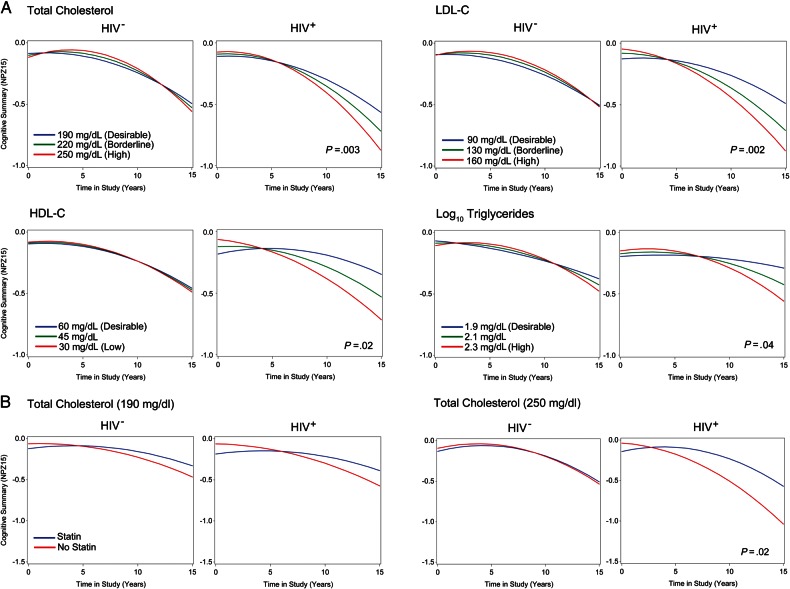Figure 2.
Higher total cholesterol, low-density lipoprotein cholesterol (LDL-C), and triglycerides are associated with faster rates of cognitive decline, whereas high-density lipoprotein cholesterol (HDL-C) levels attenuate decline in antiretroviral therapy–treated human immunodeficiency virus–infected (HIV+) men. A, Estimated slopes in neurocognitive scores according to total cholesterol, LDL-C, HDL-C, and log10 triglyceride levels stratified by HIV infection, and categorized by National Cholesterol Education Program guidelines are shown. The slopes are estimated for a man with study entry age of 50, and cohort mean IQ score 108, baseline Center for Epidemiological Studies Depression Scale score 9, and CD4 count held at 800 cells/mL. The x-axis is time in study (years) centered at zero for the first visit after age 50, and y-axis is the change in cognitive performance from the baseline score. There is an accelerated rate of age-related decline in the cognitive score as total cholesterol and triglycerides levels increase in human immunodeficiency virus–uninfected (HIV–) and HIV+ men, an effect not observed for LDL-C or HDL-C levels. Higher total cholesterol (P = .003), LDL-C (P = .002), and triglyceride (P = .04) levels in HIV+ men are associated with a steeper slope of cognitive decline during the study, whereas higher HDL-C levels attenuated the rate of decline (P = .02). B, Estimated slopes for cognitive scores according to statin use by total cholesterol levels. The association between elevated total cholesterol and faster rate of decline was attenuated in HIV+ men on a statin medication (P = .02).

